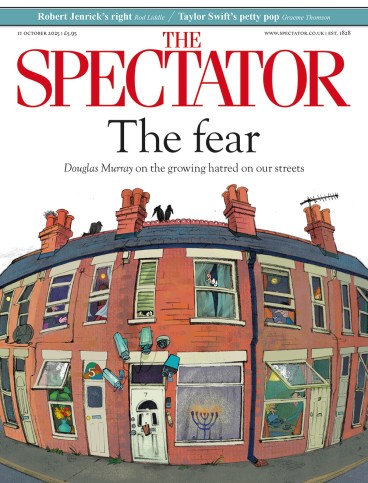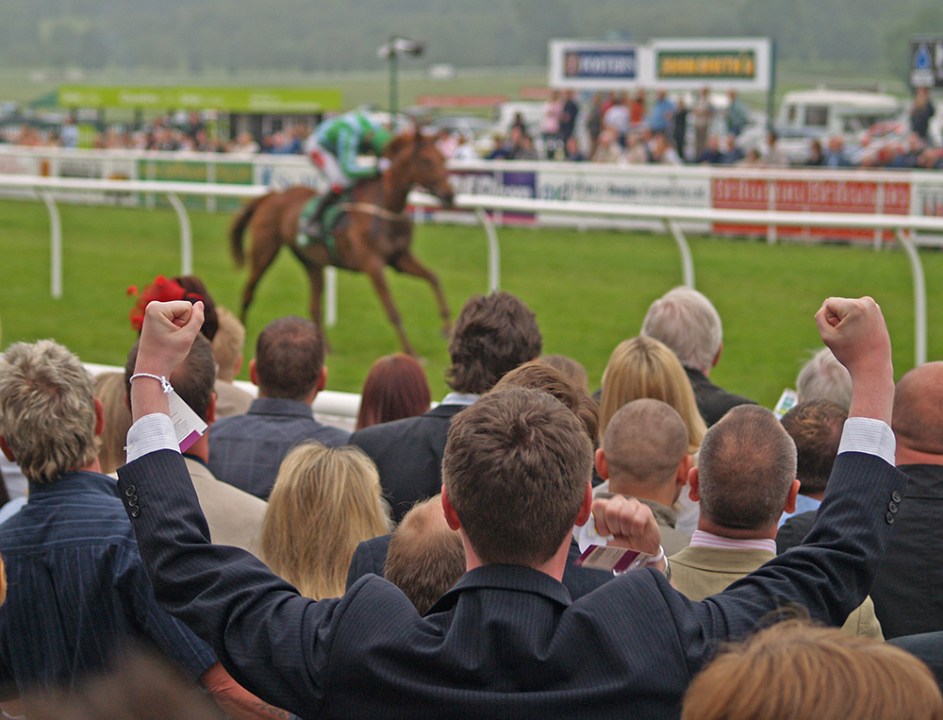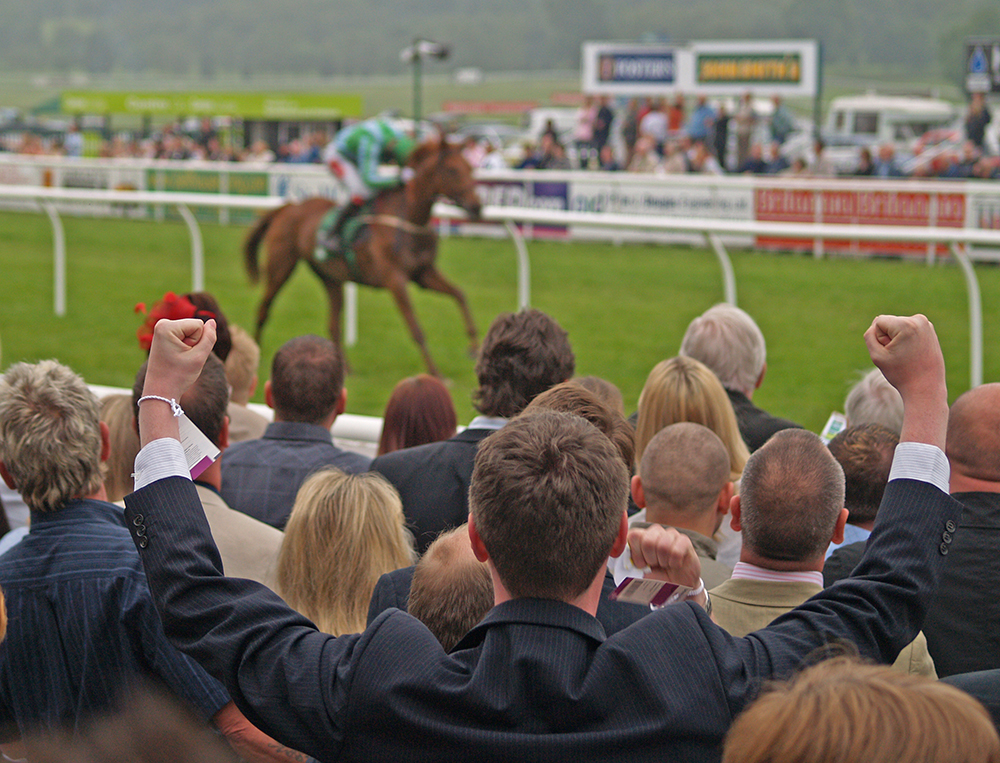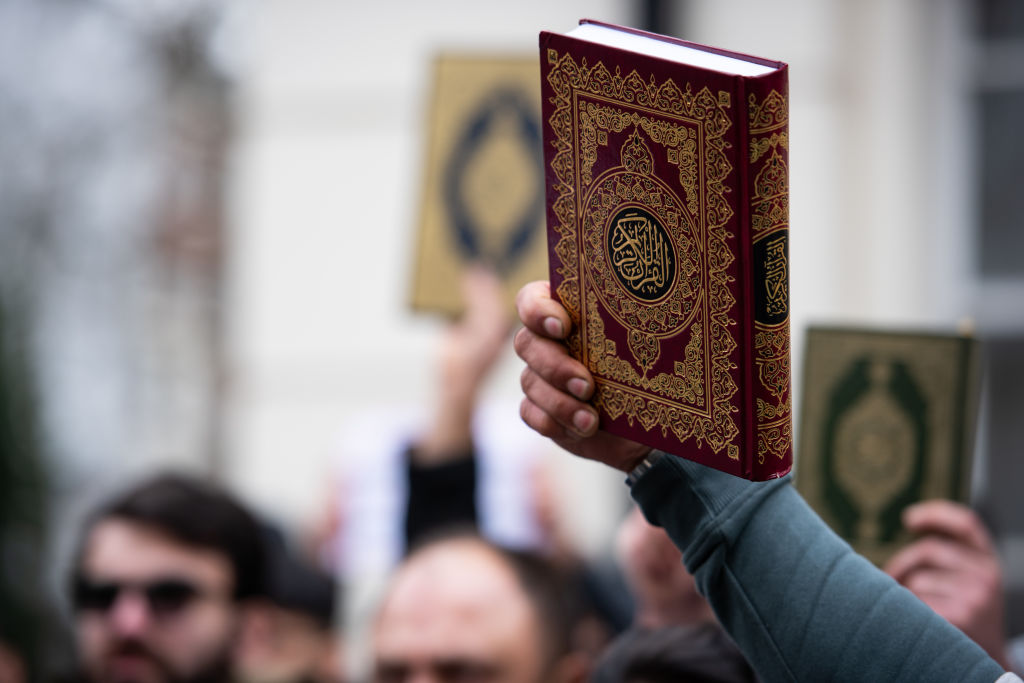
Back in the days when politicians were real flesh and blood rather than social media pushovers, I sat down with the then-chancellor Kenneth Clarke for a BBC interview. ‘Live or pre-record, Robin?’ he asked as we were mic’d up. I have long relished his reply when I confirmed it was the latter: ‘Pity. I always prefer the lives. It’s that extra frisson you get from feeling that, in a mere half-sentence, you can destroy your entire career.’
Many of us like to add a little risk to our lives – if you include playing the National Lottery some 22 million people in Britain have a gamble in the average month – and betting on horseracing has always added a hefty frisson to my pleasures. It helps to make racing the most companionable sport there is: ‘How did yours do in the last? What do you fancy for the next?’
My fear is that a government desperate to fill a massive hole in its budget is going to impose changes in gambling taxation which could imperil the very existence of racing. Politicians have long been ambivalent about gambling. They want it out in the open so they can tax the proceeds, but they remain nervous about accusations of feeding social ills or creating problem gamblers.
Until 1960, it was illegal to bet anywhere in Britain except on a racecourse or dog racing track and when, on 1 May 1961, the first licensed betting shops were opened, the ambivalence showed. Then home secretary Rab Butler said: ‘Someone leaving a betting shop should feel like they are leaving a brothel.’ The legislation stated there must be no radio, TV, music or refreshments available. We have staggered along ever since with the existence of one of the most-watched sports in the country dependent on levy payments determined by gambling revenues and the largesse of the bookmaking industry.
The racing industry -– which contributes some £4 billion a year to the economy and supports around 85,000 jobs – has made an effective case against potentially devastating increases in gambling taxation. But I very much doubt the Treasury is listening.
The government is skint. Chancellor Rachel Reeves, smugly boasting that she has never made a bet on anything, insists ‘there is a case for gambling firms paying more’. Many Labour MPs are backing calls from former prime minister Gordon Brown, the son of a Church of Scotland minister, for a range of gambling tax increases, which he says could be devoted to tackling child poverty. That link makes it sound like a painless, worthy form of revenue-raising. Bookmakers top few popularity stakes and, with ridiculous sums spent at racehorse sales, it will be presented to moralistic leader-writers as a burden rich owners can bear. The problem is that hypothecated taxes rarely stay hypothecated. Betting revenue will sink, some going underground and cutting the Treasury take, while small trainers and stable lads will lose their jobs. Of course there are some problem gamblers but our society suffers too from problem drinkers and the NHS from 20-stoners who consistently overdo the hamburgers. No one is suggesting new levies on booze or fast food to pay for child poverty.
At least Saturday’s racing offered some cheer. We don’t see enough in the south of northern jockey Clifford Lee and his Middleham-based boss Karl Burke who are going from strength to strength. On 27 September, Lee rode the topweight Boiling Point, a 14-1 shot, to an all-the-way victory in the Bet365 Cambridgeshire. It was a courageous and skilful ride by a jockey with a proper clock in his head. What was remarkable was that Lee and Burke had won the same handicap with the topweight Liberty Lane the year before.
On Saturday at Ascot, Clifford Lee was riding Burke’s Al Qareem in the Group 3 Cumberland Lodge Stakes against William Haggas’s popular veteran Hamish who, as 7-4 favourite, had a 3lb advantage on his northern adversary. The Al Qareem team determined to make a real test of it and, once again, Lee had the courage to lead all the way and win the race for a third time.
William Haggas did have an explanation for Hamish’s defeat. As the horse went to post, somebody upturned a crate of empty bottles nearby: ‘He went berserk, getting under the rail and falling over. After that, when his jockey pulled him out to challenge in the straight, a gust of wind hit him in the face and he thought: “I don’t fancy that”!’ Hamish is now nine but will carry on.
Karl Burke, meanwhile, not only took another Ascot race with Native Warrior but won the Sun Chariot Stakes at Newmarket the same afternoon with Fallen Angel: her third Group One victory in a row for Wathnan Racing. Let’s hope the well-heeled Wathnan team find Burke something worth running in the Arc next year.








Comments